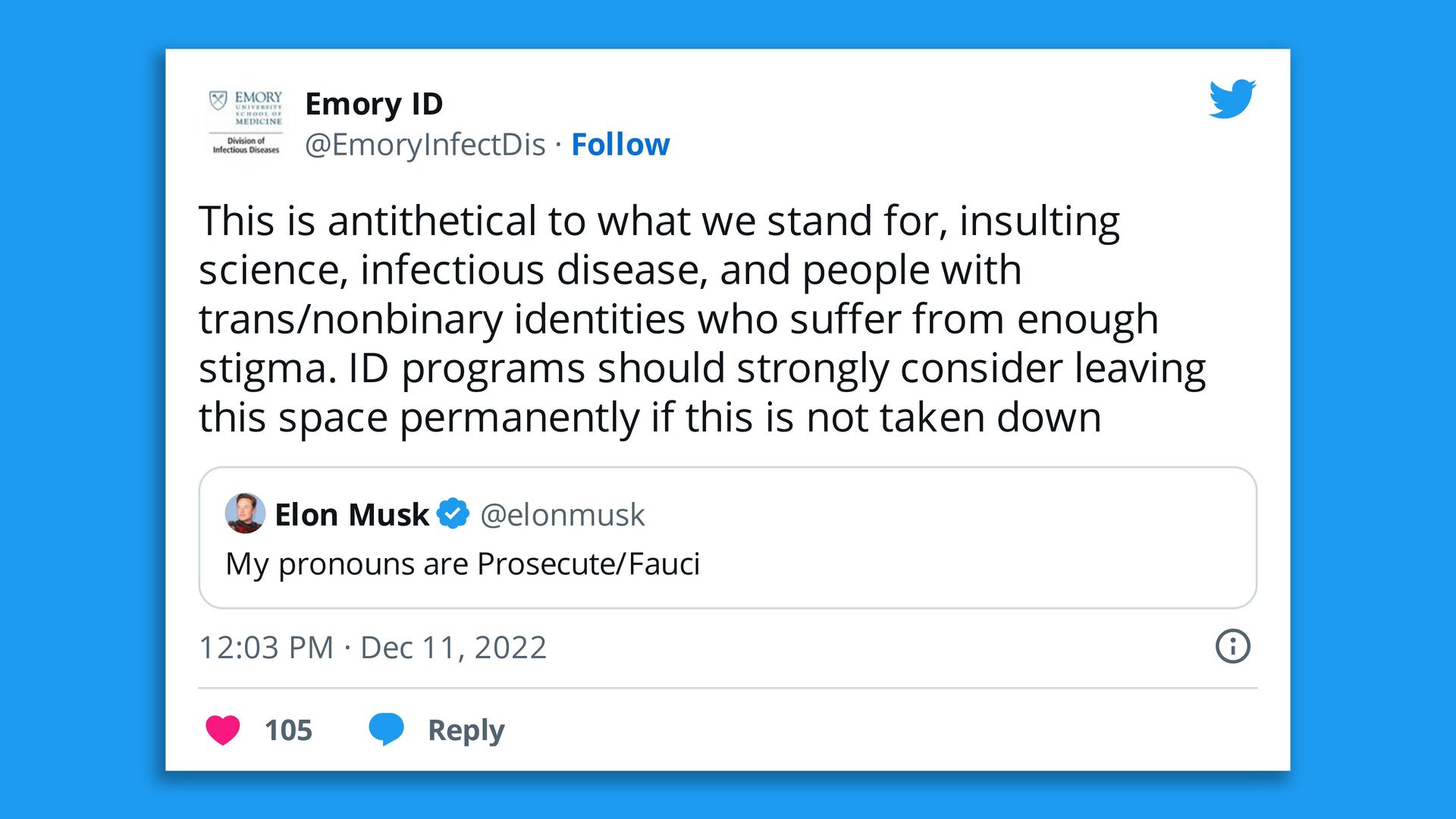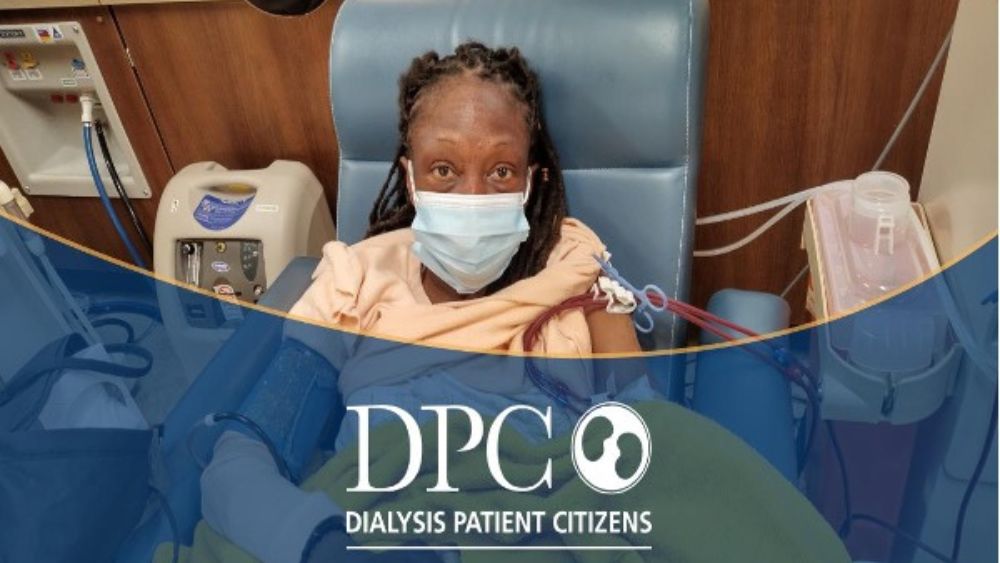| |
| |
| |
| Presented By Dialysis Patient Citizens |
| |
| Axios Vitals |
| By Tina Reed · Dec 12, 2022 |
| Happy Monday, Vitals readers. Today's newsletter is 932 words or a 3½-minute read. |
| |
| |
| 1 big thing: The growing market for weight loss drugs |
 |
|
| Illustration: Shoshana Gordon/Axios |
| |
| A new generation of FDA-approved diabetes drugs that can also help patients lose weight is prompting demand so strong that it's led to shortages. Why it matters: At least 1 in 3 American adults meets the definition of obese, which can bring an increased risk of heart disease, diabetes, and certain cancers, per the CDC. The condition is estimated to cost the U.S. health care system nearly $173 billion a year. What they're saying: "We now have a breakthrough class of drugs that can achieve profound weight loss equivalent to bariatric surgery," Eric Topol, executive vice president of Scripps Research wrote in a blog post last week. "That, in itself, is remarkable. Revolutionary." State of play: A handful of drugs that have come on the market in recent years have far outpaced previous generations of weight loss drugs in effectiveness. - These include semaglutide, which is sold by Novo Nordisk under the brand names Ozempic and Wegovy, as well as liraglutide, also sold by Novo. There's also tirzepatide, sold by Eli Lilly under the brand name Mounjaro.
- These are largely part of a growing class of drugs known as glucagon-like peptide-1, or GLP-1, agonists which are hormones that can increase insulin sensitivity, delay gastric emptying and increase satiety.
- The GLP-1 market is fast-growing, with global sales of all obesity drugs expected to total $30 billion by 2030, according to analysts at Cowen Inc. Novo is projected to capture the largest share with Wegovy sales topping $7 billion.
- There are also more drugs in the pipeline. Last week, Amgen reported promising results from an early-stage clincial trial of yet another weight loss drug candidate.
Yes, but: Insurers have resisted paying for weight-loss drugs — for example, balking at Wegovy's $1,300-a-month cost. The presumption is obesity is behavioral, despite evidence it can be linked to hormonal factors and insulin resistance, per NBC News. Go deeper. |
    |
| |
| |
| 2. A push for a pay boost for docs and hospitals |
 |
|
| Illustration: Eniola Odetunde/Axios |
| |
| Medicare advisers to Congress want an increase in hospitals and clinicians' 2o24 Medicare payment rates, Axios' Maya Goldman writes. Why it matters: If Congress opts not to follow the recommendation from MedPAC, program administrators have to make payment updates according to current law — setting up another year of providers running to lawmakers for relief from Medicare cuts after the fact. Driving the news: The advisory agency looks poised to recommend that Congress increase Medicare payment to hospitals by 1% over what the law prescribes. Between the lines: MedPAC doesn't often recommend pay increases for hospitals or clinicians. Rising costs factored into the 2024 draft recommendations, staff said during a meeting last week. - But increasing Medicare payments requires new Medicare spending. That's a tough sell in Congress as the Medicare Part A trust fund approaches insolvency.
Read the rest. This story was published first on Axios Pro. Get news like this by subscribing. Use code POLICY100 which gives you $100 off. |
    |
| |
| |
| 3. Medical Twitter angered by Musk tweet |
 |
|
| Screenshot: @emoryinfecdis (Twitter) |
| |
| Members of the medical community lashed out at Elon Musk Sunday after Musk tweeted: "My pronouns are Prosecute/Fauci," in reference to the outgoing NIAID director. Why it matters: Some medical experts have already left the social media platform since Musk took over and stopped enforcing COVID disinformation policies. However, many health care users remain on Twitter. - The Fauci tweet got more than 870,000 "likes" and 165,000 shares as of 7pm Sunday evening and drew reactions from lawmakers on both sides of the aisle.
- Another Musk tweet was of a meme reading "Just one more lockdown, my king" that superimposed Fauci and President Biden's faces.
Between the lines: Multiple public health experts fired back, in part because the viral tweet could further inflame well-documented threats to Fauci, as well as to infectious disease experts more generally. - They also took issue with Musk mocking the use of identifying pronouns for gender inclusion.
What they're saying: "This is antithetical to what we stand for," Emory Division of Infectious Diseases tweeted. "ID programs should strongly consider leaving this space permanently if this is not taken down." |
    |
| |
| |
| A message from Dialysis Patient Citizens |
| Dialysis patients deserve to choose their family's health coverage |
| |
 |
| |
| Dialysis patients didn't choose kidney disease, but now they are forced to endure hours of treatment every week and are at risk of losing their insurance coverage. Get involved: Watch and listen to the patients fighting to protect their family's choice of health coverage. Learn more. |
| |
| |
| 4. Heat-related illness claims jump |
| Heat-related illness is becoming far more common among privately-insured individuals seeking medical care, according to a FAIR Health analysis provided first to Axios. Why it matters: While the increasing health risks from climate-change-related heat have been well documented, this analysis offers a glimpse of data from more than 39 billion private health care claims on the matter. Driving the news: Patients seeking help for heat exhaustion during the summer months jumped more than 52% by June 2021, compared to June 2016, the analysis shows. Zoom in: It was part of a trend that showed higher levels of heat stress, heat exhaustion and heatstroke in every month between May and September. - Age was a factor, with those 65 and older at the highest risk for heat-related illness.
- In individuals 36 years and older, males were more likely than females to be diagnosed with heat stress. Females were more likely than males to be diagnosed among those 35 years and younger.
- "The findings in this report have implications for all healthcare stakeholders concerned with heat-related illnesses, including patients, providers, payors and policy makers," FAIR Health president Robin Gelburd said in a statement.
|
    |
| |
| |
| 5. While you were weekending |
 |
|
| Illustration: Aïda Amer/Axios |
| |
| 🪦 Doctors and lawyers debate the meaning of death as families challenge practices. (Wall Street Journal) 📈 It's beginning to look a lot like another COVID surge. (The Atlantic) 👀 The system the feds rely on to stop repeat health fraud is broken, an investigation finds. (KHN) 💰 Survivors of mass shootings are left with lifelong wounds – and mounting hospital bills. (CNN) 🔬 Google has been seeking to digitize veterans' tissue samples such as tumor biopsies, despite ethical and legal concerns raised by DoD staffers. (ProPublica) |
    |
| |
| |
| A message from Dialysis Patient Citizens |
| Fight for dialysis patients |
| |
 |
| |
| Federal protections give dialysis patients the right to maintain their private, employer insurance coverage for up to 30 months. The challenge: A recent U.S. Supreme Court decision now allows health plans to impose restrictive terms for dialysis patients and lower benefits. Help take action. |
| |
| Thanks for reading, and thanks to senior editor Adriel Bettelheim and senior copy editor Bryan McBournie for the edits. Did someone forward this email to you? Here's how to sign up. |
 | | Your personal policy analyst is here. | | |









No comments:
Post a Comment